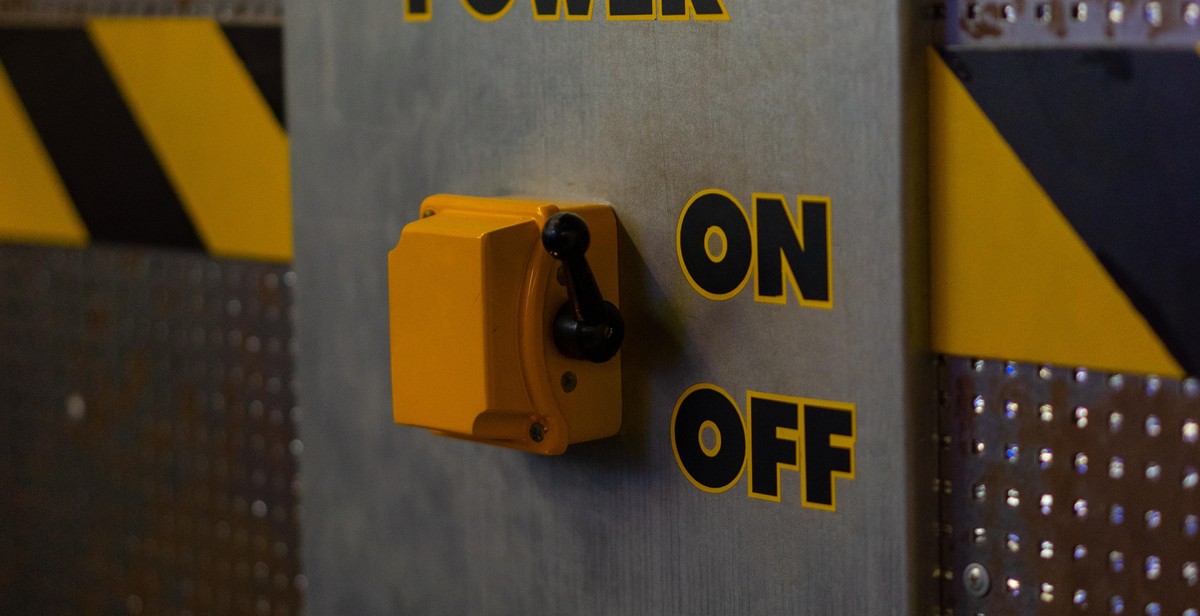From Controlled to Confident: Reclaiming Your Power in Love
Love is a beautiful thing, but it can also be a source of pain and frustration. For many of us, our past experiences have left us feeling powerless and out of control in our relationships. We may have been in relationships where we were constantly manipulated, controlled, or even abused. These experiences can leave deep scars that can affect our future relationships.
As a love and relationships psychology guru, I have seen countless individuals struggle with reclaiming their power in love. They may feel like they have lost themselves in their relationships or that they are constantly walking on eggshells to avoid conflict. But the good news is that it is possible to break free from these patterns and regain confidence and control in your relationships.
The Importance of Self-Awareness
One of the first steps to reclaiming your power in love is to become more self-aware. This means taking the time to reflect on your past experiences and how they may be impacting your current relationships. It also means getting in touch with your own needs, wants, and boundaries.
Self-awareness can help you recognize when you are giving away your power in a relationship and when you need to set boundaries or stand up for yourself. It can also help you identify patterns that may be holding you back from having healthy, fulfilling relationships.
Breaking Free from Control
If you have been in a controlling relationship, it can be difficult to break free from those patterns. But it is possible. This may involve seeking support from a therapist or loved ones, setting clear boundaries with your partner, and learning to assert yourself in a healthy way.
Ultimately, reclaiming your power in love is about learning to love and value yourself. It is about recognizing that you deserve to be treated with respect and kindness and refusing to settle for anything less.

Understanding Control in Relationships
Control is a complex issue that can have a significant impact on relationships. As a love and relationships psychology guru, I have seen firsthand the damage that control can cause in a relationship. My personal experience with control has taught me the importance of understanding this issue and how to deal with it in a healthy way.
What is Control?
Control is the act of exerting power over someone or something. In relationships, control can take many forms, such as emotional manipulation, physical abuse, or financial dominance. It can be subtle or overt, but it always involves one person trying to control the behavior, thoughts, or feelings of another.
Control often stems from a lack of trust or insecurity. The person who is trying to control their partner may feel threatened or afraid of losing them, and so they try to exert control over their partner’s actions or thoughts in an attempt to maintain the relationship.
The Negative Effects of Control
Control can have a variety of negative effects on relationships. It can lead to feelings of resentment, anger, and frustration in the person being controlled. It can also cause them to feel like they are not valued or respected in the relationship, leading to a loss of self-esteem and confidence.
Control can also lead to a breakdown in communication and trust between partners. When one person is constantly trying to control the other, it can be difficult to have open and honest conversations about important issues. This can lead to a lack of intimacy and emotional connection in the relationship.
Overall, control is a destructive force in relationships that can lead to serious problems. If you or someone you know is dealing with control in a relationship, it is important to seek help and support from a qualified professional.
Stay tuned to learn how to reclaim your power and move from a controlled to confident relationship.

Why Do We Feel the Need for Control?
At some point in our lives, we all feel the need for control. Whether it’s in our personal relationships, at work, or in other areas of our lives, the desire to control things can be overwhelming. But why do we feel this way?
Fear of Abandonment
One of the most common reasons why people feel the need for control is the fear of abandonment. This fear can stem from childhood experiences, such as a parent leaving or neglecting them. As a result, they may develop a deep-seated fear of being left alone and will do everything in their power to prevent this from happening again. This often leads to controlling behaviors in relationships, such as constantly checking in on their partner or trying to control their every move.
Low Self-Esteem and Insecurity
Another reason why people feel the need for control is low self-esteem and insecurity. When someone doesn’t feel good about themselves, they may try to compensate by controlling others. They may feel like they have to be in charge to prove their worth or to feel better about themselves. Unfortunately, this often leads to toxic relationships and can push people away.
Past Trauma
Past trauma can also contribute to the need for control. If someone has experienced trauma in their past, they may feel like they have no control over their life. As a result, they may try to control everything around them as a way to feel more in control. While this may provide temporary relief, it can also lead to negative consequences in their relationships.
- Overall, the need for control can stem from a variety of reasons, including fear of abandonment, low self-esteem and insecurity, and past trauma.
| Reasons for the Need for Control | Examples of Controlling Behaviors |
|---|---|
| Fear of abandonment | Constantly checking in on partner, trying to control their every move |
| Low self-esteem and insecurity | Feeling like they have to be in charge to prove their worth or to feel better about themselves |
| Past trauma | Trying to control everything around them as a way to feel more in control |

The Importance of Letting Go of Control
As a love and relationships psychology guru, I cannot stress enough the importance of letting go of control in your romantic relationships. It is a common misconception that being in control is a sign of strength and power. However, it is quite the opposite. Being controlling in a relationship can lead to a lack of trust, low self-confidence, and unhealthy boundaries.
Learning to Trust
When you are constantly trying to control your partner and their actions, you are essentially telling them that you do not trust them. This can create a toxic cycle of mistrust and resentment in your relationship. Learning to trust your partner is essential for a healthy and fulfilling relationship. By letting go of control, you are showing your partner that you trust them and their decisions. This can lead to a stronger and more secure bond between the two of you.
Building Self-Confidence
Being in control can also stem from a lack of self-confidence. You may feel that if you are not in control, things will not go as planned. However, this type of thinking is limiting and can hold you back in your personal and professional life. By letting go of control in your relationship, you are also building your own self-confidence. You are showing yourself that you can trust others and that you are capable of handling any situation that comes your way.
Creating Healthy Boundaries
Lastly, letting go of control can help you create healthy boundaries in your relationship. When you are in control, you may feel that you have to be involved in every aspect of your partner’s life. This can lead to a lack of individuality and independence in your relationship. By letting go of control, you are allowing your partner to have their own space and freedom. This can create a healthier and more balanced dynamic between the two of you.
- Letting go of control can lead to a stronger and more secure bond between you and your partner.
- By letting go of control, you are building your own self-confidence.
- Letting go of control can help you create healthy boundaries in your relationship.

Steps to Reclaiming Your Power in Love
Feeling controlled in a relationship can be a frustrating and disempowering experience. However, it is possible to regain your power and confidence in love. Here are some steps to help you reclaim your power:
Identify Your Triggers
It’s important to understand what triggers your feelings of being controlled in a relationship. Is it a certain behavior or comment from your partner? Is it a past experience that still haunts you? By identifying your triggers, you can work towards avoiding or managing them.
Practice Mindfulness
Mindfulness is the practice of being present in the moment and aware of your thoughts and feelings without judgment. By practicing mindfulness, you can become more aware of how you are feeling and why. This can help you recognize when you are feeling controlled and give you the power to respond in a more assertive and confident way.
Communicate Your Needs
It’s important to communicate your needs and boundaries to your partner. This can be challenging, but it’s essential in any healthy relationship. Be clear and specific about what you need and why it’s important to you. Remember that your needs are valid and should be respected.
Take Action
Finally, take action to reclaim your power. This can mean setting boundaries, speaking up for yourself, or even ending the relationship if it’s not healthy for you. Remember that you have the power to make choices that are in your best interest.
- Identify your triggers
- Practice mindfulness
- Communicate your needs
- Take action
By following these steps, you can regain your power and confidence in love. Remember to be kind and patient with yourself as you work towards reclaiming your power.

Conclusion
Reclaiming your power in love is a journey that requires patience, self-awareness, and a commitment to growth. It’s not easy to break free from the patterns of control and insecurity that have been ingrained in us, but it’s possible.
Start by examining your beliefs and behaviors around love, and be honest with yourself about what needs to change. Seek support from friends, family, or a therapist. Practice self-care and self-love, and remember that your worth is not defined by your relationship status.
When you let go of control and embrace confidence, you open yourself up to a world of possibilities in love. You attract healthier relationships, and you become a better partner yourself. You learn to trust yourself and your intuition, and you find fulfillment in all areas of your life.
Take Action Today
If you’re ready to reclaim your power in love, start today. Take a small step towards change, whether it’s setting a boundary with a partner, practicing self-care, or seeking professional help. Remember that every step counts, and that you have the strength and resilience to create the life and love you deserve.
Recommended Resources
- Psychology Today – a great resource for finding a therapist or learning more about mental health and relationships
- TED Talks – inspirational talks on a variety of topics, including love and relationships
- The Power of Vulnerability by Brené Brown – a book on the importance of vulnerability and authenticity in relationships
 |
Remember: You are worthy of love and respect, and you have the power to create the relationships and life you desire. |
